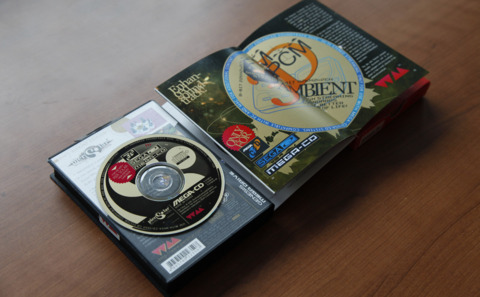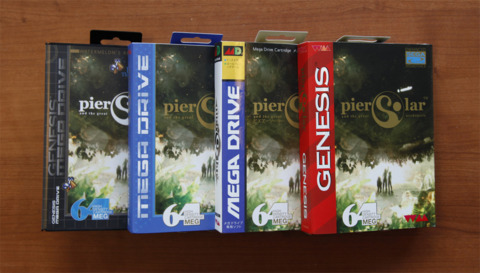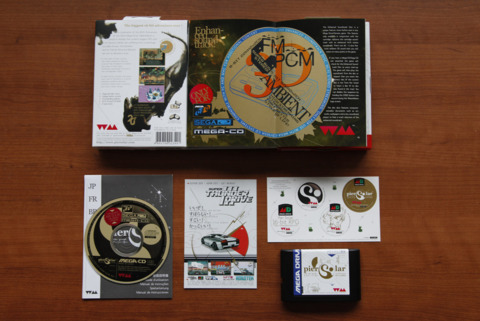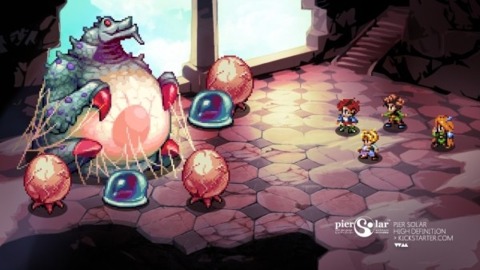Watermelon Corporation and the Benefits of the 16-Bit Experience
Creating games for consoles that came out 20 years ago is possible thanks to the support of the gaming community and a bit of modern ingenuity.
If you were locked in a room with the last big-budget game you'd purchased and a game from your childhood, and you had to destroy one to save the other, which would you choose to save? Herein lies the great rift between the games we'll eventually cherish and the games we'll merely remember, and while there's no right answer, if you hesistated for a second, there's a good chance you see the value in, for lack of a better name, retro games.

Nostalgia has inspired a revival of development for so called "dead" consoles.
There was a time when creating fun and enjoyable experiences was at the forefront of developers' minds. That's not to say that modern games can't be fun, or that there aren't new games built on these same ideals, but the ratio has shifted. Indie and mainstream developers have made an effort to revive games reminiscent of a simpler time, but even when Capcom does the unthinkable and releases two "8-bit" Mega Man sequels, there's a little voice in the back of your head calling their bluff. Their heart is in the right place, but wouldn't it be something if you could play Mega Man 9 and Mega Man 10 on an actual Nintendo Entertainment System?
So what do you do if you want to re-create the experience of gaming in your decade of choice?So what do you do if you want to re-create the experience of gaming in your decade of choice? As usual, the Internet has you covered; eBay and Amazon are full of sellers with antiquated games and consoles in ready supply. Spend enough time chasing your childhood favorites, however, and you'll eventually come to the realization that there's a finite selection of games. Yes, you could in theory collect retro games until your dying days, but when you examine the number of games that you actually want to play, you'll likely discover that you truly care about only a fraction of any console's library. So what, then, do you do when you've exhausted your particular stable of memorable titles? If you're a "normal" person, you'll bury your nostalgia-driven motives, put the cartridges and consoles aside, and call it a night.
On the other hand, if you believe that your NES or Genesis can coexist with a PlayStation 3 or Xbox 360 in the untamed wilderness of your living room, how do you continue to enjoy a system that has effectively been put out to pasture? There are really only two options:
A. Sample other (potentially unfamiliar) games that were released during your childhood, in the hopes they'll keep your nostalgia boat afloat.
B. Support the talented and reckless individuals who, against all odds, continue to produce original games for systems that are 10, 20, even 30 years old.
Believe it or not, option B isn't as unrealistic as it sounds.

In 2004, an unusual game named Tavern RPG appeared on Eidolon's Inn, the site of a community dedicated to the development of homebrew software for the Sega Genesis. Conceived as a tribute to the members of the site's forum, the Tavern, its developers eventually abandoned that concept in favor of creating a grand tribute to Japanese role-playing games. They renamed it Pier Solar, and in 2010, they released a finished, physical product. The team, now known as Watermelon Corporation, self-published elaborately designed packages based on each region's (North America, Europe, and Asia) traditional packaging aesthetic.


Watermelon's attention to detail is staggering. The packaging is so well made, bursting with nuance and extra "goodies," that you'd easily mistake it for a limited-edition Genesis game. The fact is: it is. Copies of the first two printings cost hundreds of dollars when they even show up on eBay. These original printings also include a companion soundtrack CD that replaces the standard synthesizer tracks when placed in a Sega CD, something not found in the still (barely) available, modestly packaged Reprint EP edition.
It's good then that Watermelon was able to craft a game worthy of such an exhaustive treatment. Pier Solar comes on the largest Genesis cartridge ever produced in terms of memory capacity. At 64Mb (megabits), it towers over the former champ, the 40Mb Super Street Fighter II. Pier Solar's structure and art style are reminiscent of Game Arts' Sega CD legend, Lunar: The Silver Star, a testament to the talent hidden within Watermelon Corporation.

With Pier Solar under its belt, and a Kickstarter for an HD version currently in progress, Watermelon started preliminary development of two new games for old systems, one each for the Sega Genesis and the Super Nintendo Entertainment System.
Most interestingly, Watermelon is crowd-funding and crowd-designing each of these games, tentatively known as Project N and Project Y. Anyone can purchase gems (1 gem = 10 cents) from Watermelon and use them to influence the decision-making process as development continues. Whenever Watermelon opens polls requesting input, you essentially vote with your gems. You can also occasionally invest in, say, 500 gems and qualify for an increase in your influence on the game in question.

Watermelon reserves the right to ignore any decision made as a result of these polls and is up front about this policy, but it's not a cause for concern. When you examine its history as a community-based development team with a track record of integrity and a proven capacity to deliver on promises made, it's reasonable to expect that the company will stay true to its initial vision.
While the outcome of the Kickstarter campaign for Pier Solar HD will ultimately determine its fate, Project N and Project Y aren't tied to such conditions. It may take a year, though more likely a couple of years, for Watermelon to complete the games, but if the result ends up even close to the quality of Pier Solar, it'll be worth the wait.
If you've longed for the experience of returning to the consoles that brought you and your gaming compatriots joy during your childhood, or even as adults, you have the ability to support their revival. As Watermelon continues to grow, the hope is that it will eventually be able to regularly produce original games, and potentially inspire others to do the same. We can count on most publishers of AAA games to do what they've always done: chase technology and dollar signs. If efforts undertaken by the likes of Watermelon are to continue, it's up to the minority of the cartridge obsessed to make it happen.
Got a news tip or want to contact us directly? Email news@gamespot.com
Join the conversation